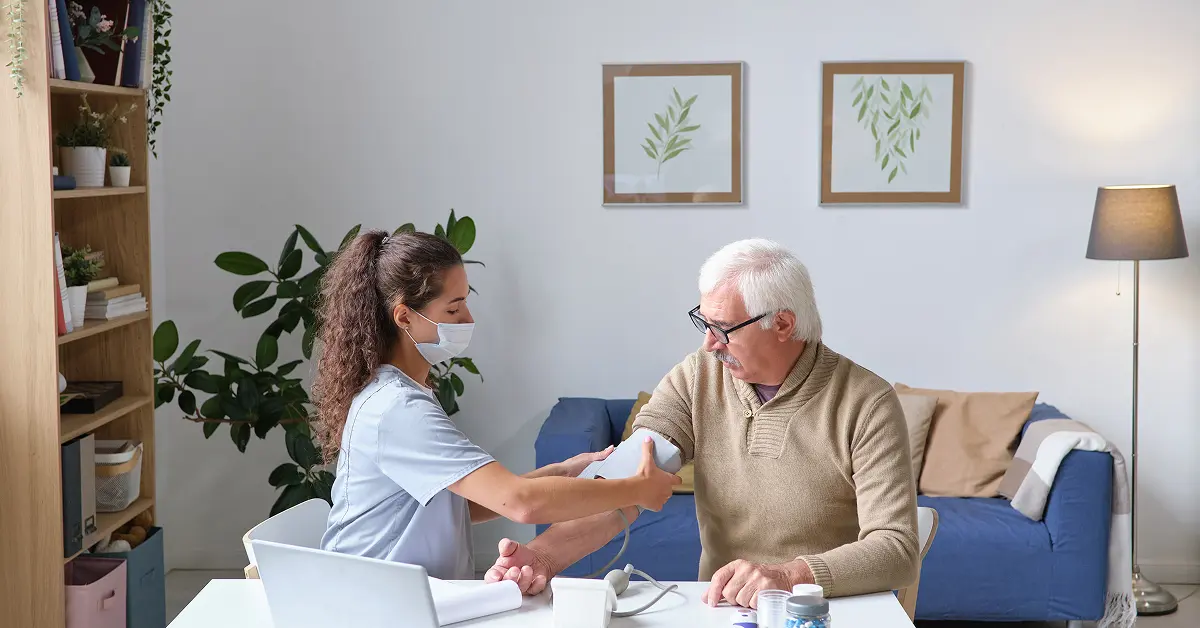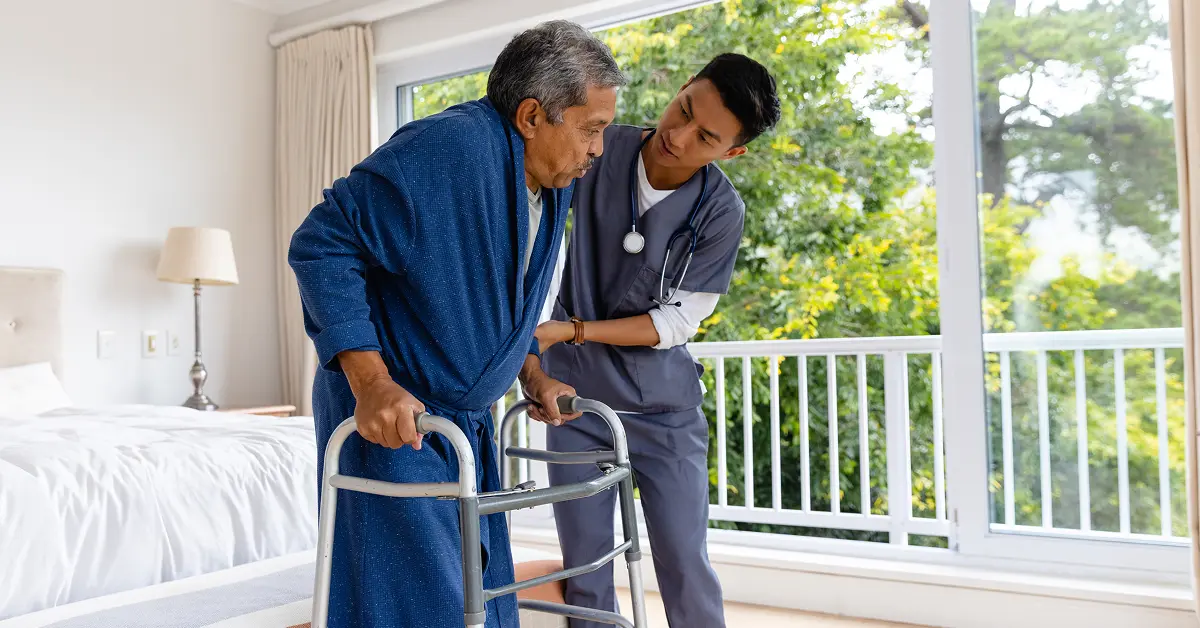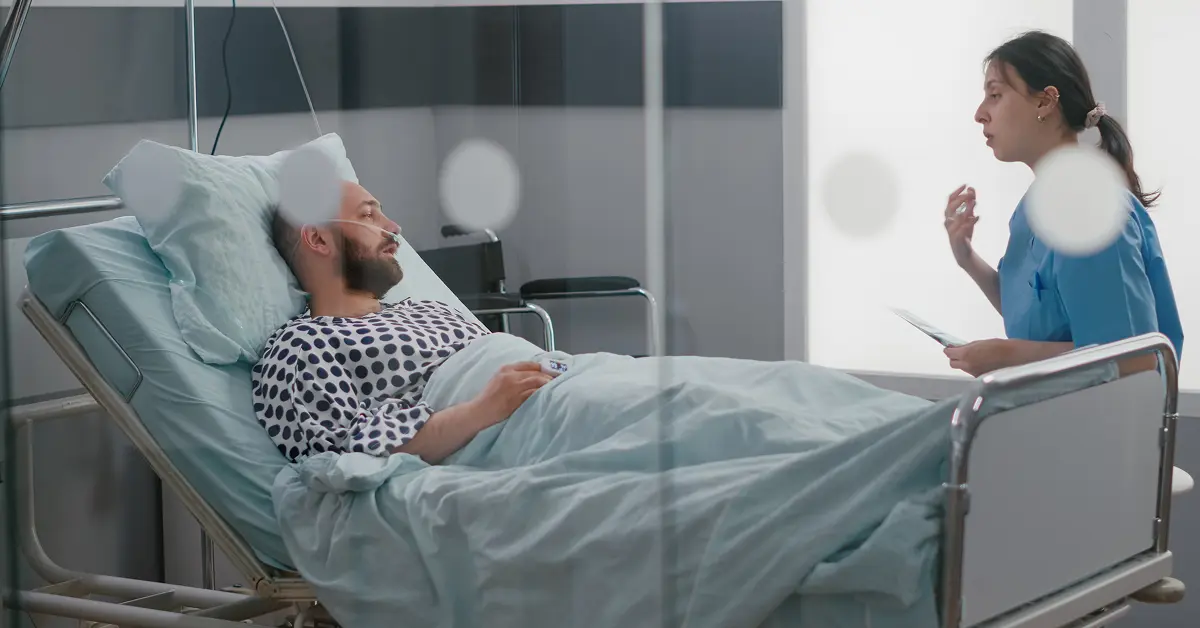Leaving the hospital can bring a sense of relief—but it also marks the beginning of a critical healing journey. Recovery doesn’t stop at the hospital doors. Whether the patient is a senior citizen, recovering from surgery, or managing a chronic condition, the post-discharge period demands careful planning and attention to prevent complications and readmissions.
In India, many families struggle with managing home care after Hospital Discharge due to lack of medical knowledge, time, or access to resources. This blog will walk you through the essential steps to manage recovery at home effectively and safely.
Understand the Discharge Summary Thoroughly
The first and most important step is understanding the discharge summary provided by the hospital. This document includes vital information such as:
- Diagnosis and treatment received
- Medications to continue at home
- Dietary restrictions
- Recommended physical activity
- Signs of complications
- Schedule for follow-up appointments
Ask questions if anything is unclear. Don’t leave the hospital without clear instructions. If needed, request the doctor to explain things in your regional language.
Plan for Safe Transportation Home
Many patients may feel weak, drowsy, or in pain after discharge. Arrange for a safe, comfortable mode of transport from the hospital to your home. Avoid bumpy rides and ensure the patient has proper seating and support. In some cities, you can hire a medical transport service with trained attendants.
Prepare the Home for Recovery
Before the patient arrives home, ensure the environment is ready for healing:
- Clean and disinfect the recovery space thoroughly.
- Remove hazards like slippery rugs, loose wires, or cluttered furniture.
- Place essentials like water, medicines, tissues, and a bell or mobile phone within arm’s reach.
- Install support tools such as handrails, bedside commodes, or an adjustable hospital bed, if needed.
Manage Medication with Care
Medication mismanagement is one of the biggest reasons for readmission. Follow these steps:
- Use a pill organizer to separate doses by day and time.
- Create a medicine chart to track what was taken and when.
- Understand which medicines must be taken with food, and which should be avoided at night or with other drugs.
- Watch out for side effects and allergic reactions.
Stick to the Prescribed Diet
Food plays a huge role in recovery. The patient’s body needs nutrients to heal tissues, build immunity, and regain energy.
- Follow the diet chart provided by the hospital.
- Avoid junk food, sugary items, or oily snacks—even if the patient craves them.
- Ensure the patient stays hydrated throughout the day.
- Offer home-cooked, easily digestible food, like khichdi, dal-rice, soups, or stews.
- For special conditions like diabetes or heart disease, stick to the prescribed meal plan.
Schedule and Attend Follow-up Appointments
Don’t miss follow-up visits. These appointments help the doctor:
- Monitor the healing process
- Adjust medications
- Address any emerging complications
- Recommend further therapy or tests
Monitor for Warning Signs
Knowing the danger signs can help prevent emergencies. Keep an eye on:
- Sudden fever
- Difficulty breathing
- Increased pain or swelling
- Bleeding from wounds or stitches
- Confusion, dizziness, or fainting
Support Emotional Well-being
Physical recovery often goes hand-in-hand with emotional healing. Many patients feel anxious, depressed, or irritable after discharge.
- Spend time with the patient and offer emotional support.
- Allow them to express fears or frustrations.
- Encourage light activities like reading, watching TV, or short walks.
- Consider consulting a psychologist if needed.
Get Professional Home Care Support
Not every family member is trained to manage medical care. Depending on the patient’s condition, consider hiring:
- Home nurses for injections, wound care, and IV management
- Physiotherapists for post-operative or stroke recovery
- Attendants or caregivers for daily assistance with bathing, feeding, and mobility
Encourage Gradual Movement and Activity
Unless bed rest is strictly advised, gentle activity helps the patient regain strength.
- Encourage sitting up, standing, or walking for short durations.
- Support exercises prescribed by the physiotherapist.
- Don’t rush—it’s okay if the patient takes time to recover.
Ensure Proper Sleep and Rest
Recovery demands good sleep. Make the patient’s room comfortable:
- Use blackout curtains or an eye mask if needed.
- Reduce noise and light in the evenings.
- Avoid caffeine or mobile screens before bedtime.
Keep Communication Open with the Doctor
Always stay connected with the healthcare provider, especially in the first 30 days after discharge. Use WhatsApp, email, or patient portals if in-person visits aren’t possible.
Keep a record of vital parameters like temperature, blood pressure, blood sugar, or oxygen levels—especially for high-risk cases.
Final Thoughts
Managing recovery after hospital discharge doesn’t have to be overwhelming. With the right planning, awareness, and support, you can create a safe and comforting space at home for your loved one to heal.
In India, where joint families and caregiving are often the norm, ensuring that everyone is on the same page—including domestic helpers—can streamline care and reduce stress. If needed, don’t hesitate to seek professional help. Your loved one’s health and comfort are worth it.
Contents
- Understand the Discharge Summary Thoroughly
- Plan for Safe Transportation Home
- Prepare the Home for Recovery
- Manage Medication with Care
- Stick to the Prescribed Diet
- Schedule and Attend Follow-up Appointments
- Monitor for Warning Signs
- Support Emotional Well-being
- Get Professional Home Care Support
- Encourage Gradual Movement and Activity
- Ensure Proper Sleep and Rest
- Keep Communication Open with the Doctor
- Final Thoughts
Our 24*7 services
Latest Posts
- What Is Respite Care and Why Is It Important
- Affordable home care for senior citizens in India
- Caring for Seniors with Dementia or Alzheimer's at Home
- Senior Caregiving A Guide for Every Family
- How to Write a Caregiver Resume That Gets You Hired
- How Care After Hospital Discharge Speeds Up Recovery at Home
- How to Get Home Health Care for Seniors Through Medicare
- What Does a Senior Citizen Caregiver Really Do at Home
- How to Care for Elderly Parents with Alzheimer’s or Dementia
- How to Get 24-Hour Care for Seniors at Home



